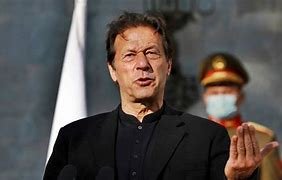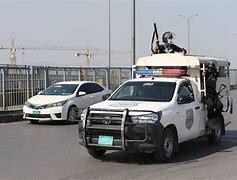Imran Khan who is the Former Prime Minister of Pakistan, regarded as one of the most popular leaders in the country, has already been eliminated from the election. This Monday (29th January), a local court sentenced him jail sentence and prevented him from holding any public office for a decade. He can still appeal to higher courts, but his name has already been removed off the ballot for the February 8 election.

In a crackdown on Imran Khan’s party, plainclothes police and security officers allegedly entered and took control of its central secretariat here on Thursday, barring members from entering. According to reports, the raid occurred the day after Khan and his wife Bushra Bibi had been convicted to 10 years in jail each in a corruption case.
The PTI party held virtual meeting
It occurred shortly before the Pakistan Tehreek-e-Insaf (PTI) party’s general body meeting in Sector G-8 in Islamabad on Wednesday. However, the PTI general body was able to convene a virtual meeting in which it resolved to organise organisational elections in a fortnight. Khan’s party encountered various challenges prior to the February 8 general elections, ranging from the refusal of its electoral symbol, the cricket bat, to the rejection of candidature papers for Imran Khan, ex foreign minister Shah Mehmood Qureshi, and several other party officials.
An officer with the capital police refuted the accusation, stating that a raid could not be undertaken without the consent of a magistrate, and no such order was granted on Wednesday.

He said that on the condition of secrecy, they went there to offer security. The unnamed official stated that “As a judgement against Imran Khan and Bushra Bibi was announced, there was a possibility that a protest would be held there. Police did not enter the secretariat and remained outside.”
At the virtual meeting, the PTI general body appointed Omar Ayub as head organiser and gave him the authority to send out notices for intra-party elections. It also established a new electoral commission, led by Raoof Hasan as chief election commissioner, with one representative from each province and Gilgit Baltistan.
A PTI spokesperson, who requested anonymity, stated that the general body meeting was scheduled to be conducted in Islamabad, all provincial capitals, and Gilgit Baltistan, with all stations connected over the internet. However, in Islamabad, police and civilians entered the central secretariat, removed security, and took possession of it. Staff were instructed to leave, and a handful who wanted to stay were limited to their offices.
A ‘crackdown’ similar to that in Islamabad was initiated against the party in Quetta, but the members quickly moved the location of the meeting and were able to attend it physically.
Pakistan is experiencing fault lines and political crises

However, there are more pressing challenges affecting Pakistani politics now than the conduct of an election. In reality, the election results may not completely represent the country’s various fracture lines.
These fault lines began to develop about a decade ago, when Khan and his party, the Pakistan Tehreek-e-Insaaf (Justice Party), gained support with voters and formed a government in Khyber Pakhtunkhwa in 2013. After years of twists and turns in which Khan initially gained favour with the military establishment but later fell foul of it, the true split occurred on May 9, 2023. The events on this date, in which hundreds of Imran Khan’s followers attacked, torched, and ransacked military buildings around the country, have changed Pakistani politics. The vibrations continue to this day.
Since that time, Khan and his allies have faced the full force of the law, as well as an array of resignations.











Comments 1